Tuesday 8 September 1964 on Southern
In depth into Southern Television’s schedule for Tuesday 8 September 1964
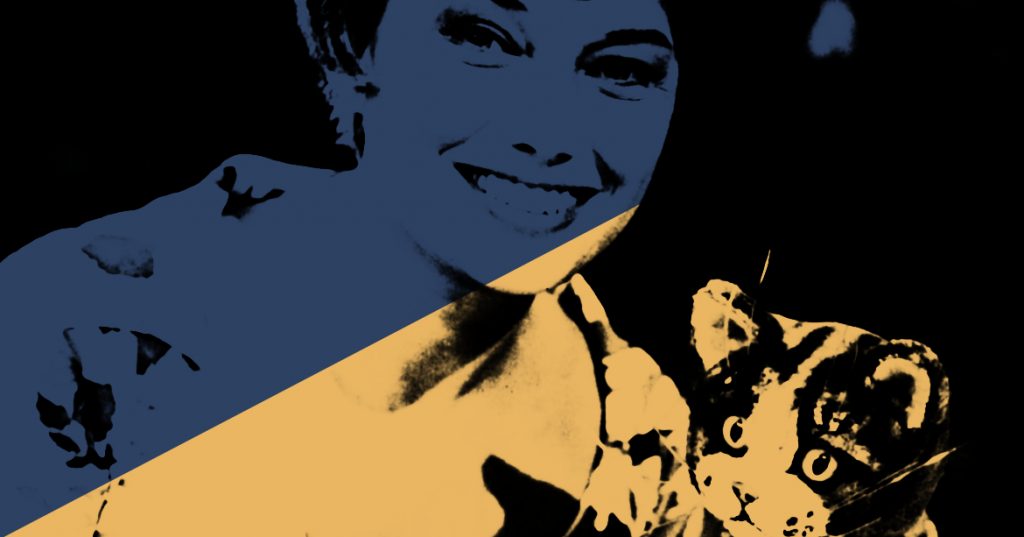
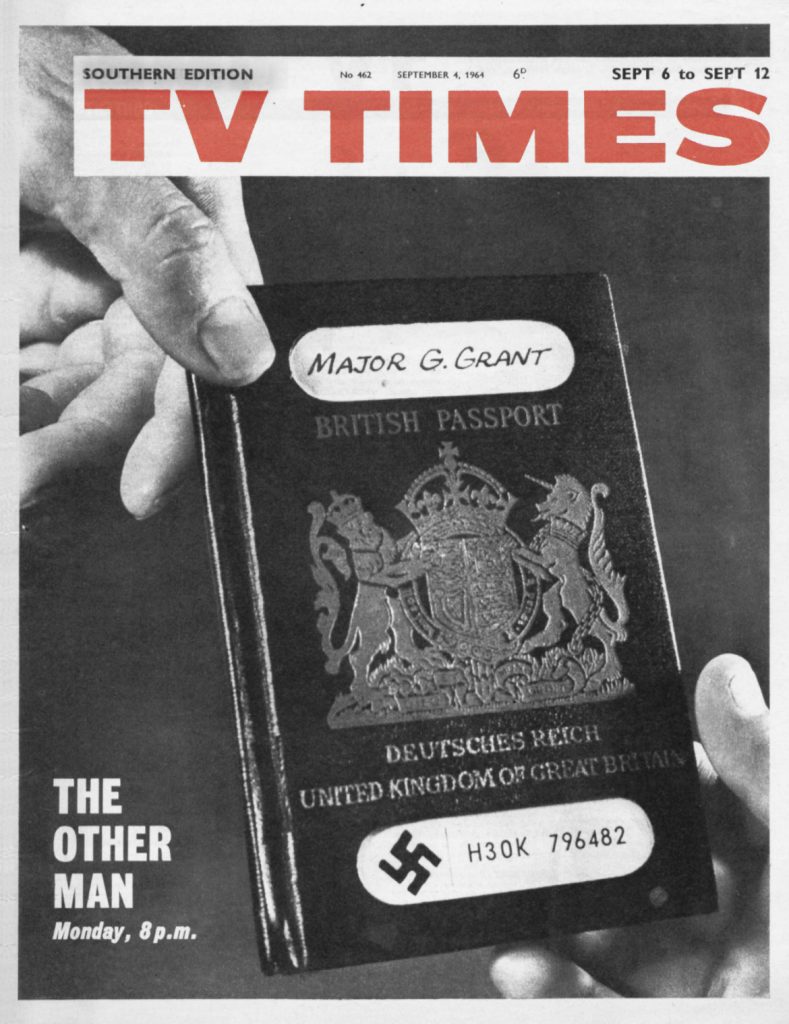
From the TVTimes for 6-12 September 1964 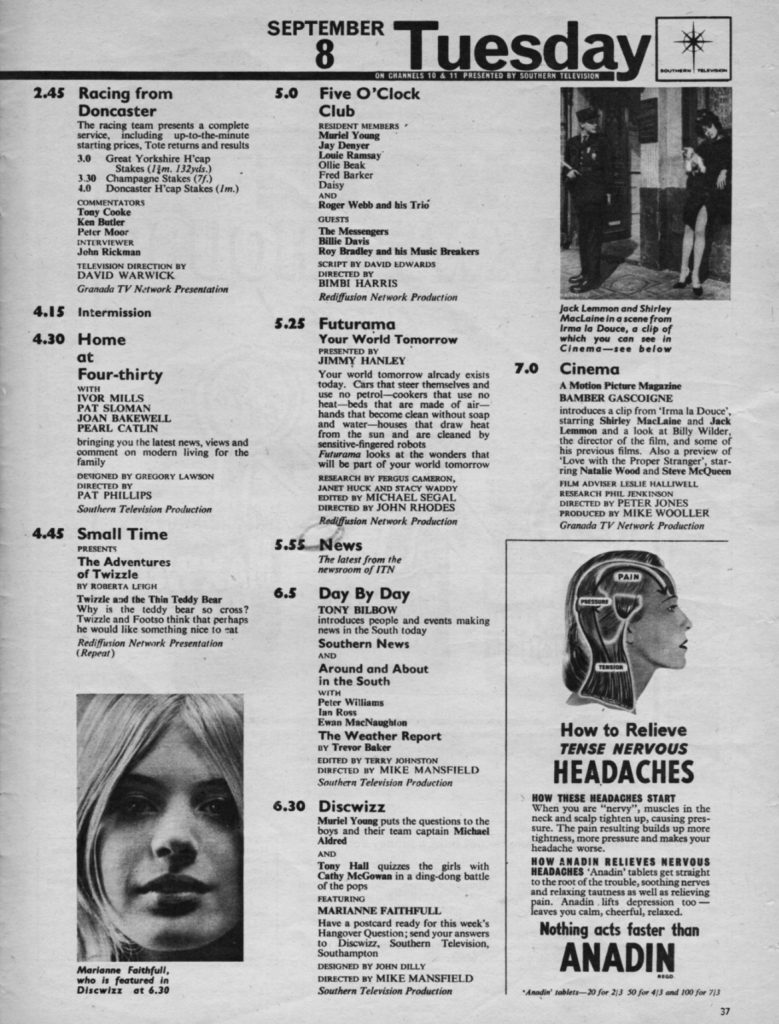
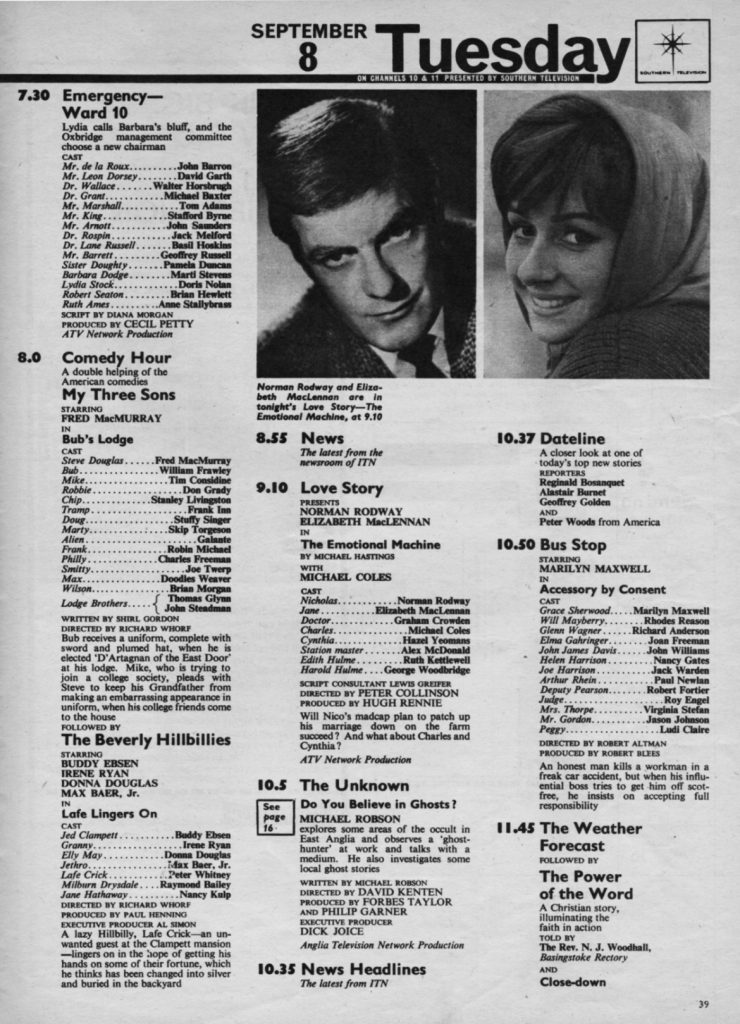
Tuesday 8 September 1964 begins as the rest of the week will, with the horse racing from Doncaster. The TVTimes accurately bills it as a Granada TV Network Presentation rather than Production, as it’s actually Rediffusion’s OB racing team in disguise. The same OB production team were together for over 20 years, through Associated-Rediffusion, Rediffusion London and Thames, making this one of the most consistent sports formats ITV ever came up with.
The racing finishes at 4.15pm, leaving a short gap before afternoon and evening programmes can reasonably be on. Southern’s gap is 15 minutes; by comparison, Rediffusion in London is off for 30 minutes. The General Post Office’s rules on these things were that gaps under 20 minutes were mere intervals, so a slide or clock and some gramophone music could be played out, which is what Southern would have done. Gaps of over 20 minutes require the ITV contractor to hand the transmitter back to the Independent Television Authority, for it to go off or to radiate a test card or a trade test. This requires a quick formal closedown and then a full 5-minute opening sequence with authority announcement at the end, which is what Rediffusion will have done.
BBC-2’s Joan Bakewell and ITN’s Ivor Mills present Southern’s Home at Four-Thirty. This is 15 minutes long, leading one to wonder what can possibly be squeezed into such a short time. Whether it’s budget or the tight rules on broadcasting hours that keeps this programme to a mere 45 minutes a week is a good question.
Children’s television begins at 4.45pm and does what these slots have always done: start with the very youngest and make their way up to the older children. The first programme, Small Time, is the Rediffusion version of the BBC’s Watch With Mother, an overall title for a parade of different formats, albeit linked each day by Pussycat Willum and his human handler – Rediffusion announcers Muriel Young or Howard Williams. The programmes run across the week with the pattern of a story on Mondays, puppets on Tuesdays, music on Wednesdays, a picture book on Thursdays and an adventure serial on Fridays. The ITA Yearbooks call this slot ‘part networked’, but the list of regions not showing it – ATV Midlands, Granada, both TWW services, STV and Grampian – comes to comfortably over 50% of the population.
Howard Williams will be presenting Small Time today, as Muriel Young is otherwise engaged in the fully networked twice weekly Five O’Clock Club, Rediffusion’s answer to Blue Peter. The difference between Blue Peter and the Five O’Clock Club was that the Club managed to be simultaneously hipper than Blue Peter and yet also more childish. The Club happily brought on (slightly second rank) pop singers to fill their 25 minutes, providing the hip quota, but also had a parade of puppet presenters. These latter creatures just avoided poisoning too many of the more grown up viewers by having a line in cheeky jokes and comments and bantering with the sometimes exasperated human presenters.
5.25pm sees the now-google-proof Futurama. This programme, whilst aimed at older children rather than adults, would be what the BBC would rip off next year to create Tomorrow’s World: a mixture of gadgets, scientific developments and general popular science. Futurama was presented by Jimmy Hanley, who had started off as a Rank juvenile before the war, then crossed over into grown up roles afterwards, but never becoming a real film star. What made his name was presenting Associated-Rediffusion’s advertising magazine cum soap opera cum comedy drama Jim’s Inn, where he was the eponymous landlord. His avuncular style and obvious good nature resonated well with viewers and made him an idea adult to guide younger watchers around the scientific world they would find when they reached adulthood. He even had a kids column in the TVTimes – Tivvi Club – for many years.
The 6.30pm slot is fascinating. It’s used by ITV to get a slice of the family viewing audience who are mostly to be found watching on weekends. This valuable audience was hard for the weekday companies to catch, so much so that Granada didn’t even bother, filling the slot with its highly regarded local news magazine Scene. Rediffusion put a first run episode of animated comedy The Flintstones in this space – ticking all the boxes for family viewing – whilst Southern has their own production, Discwizz.
Discwizz, which was evidently not live because the train service from Waterloo to Southampton can’t get Muriel Young there after her Five O’Clock Club live stint, lines up two teams of 15-25 year olds, split into male and female, each with a team captain from the record industry. Muriel Young and Tony Hall were both known to viewers from their Radio Luxembourg pop programmes (Hall had just helped launch Radio Caroline as well) and the director, Mike Mansfield, was himself a composer and industry insider. This show is likely reaching more of a teen audience and less of a family audience than The Flintstones are doing in London, but it makes up for Southern’s bizarre timeshifting of Ready Steady Go! to Sunday afternoons.
Emergency – Ward 10 (note the placement of the dash) at 7.30pm is ATV’s hugely popular networked soap opera – Crossroads not starting until November – which had begun its run in February 1957. The continuing story of a hospital filled with implausibly good looking staff and patients – one of the latter dying each episode – was a cash cow for ATV… but not enough of one. The company felt that to make real money, it needed to sell abroad, and soap operas with their continuing storylines don’t sell very well, especially in America where syndication makes telling a linear story difficult. For that reason, in September 1966 it was converted to a one-hour series of discrete, easier-to-sell dramas with very few continuing storylines, and not much in the way of plot or character development. This may have been easier to sell to the Americans, but it was a hard sell for the British, who deserted the series in droves, and it was cancelled in July 1967.
What to do with American imports? Whilst the hour long dramas had a lot to recommend them, the half hour comedies had the awful problem of being immensely popular yet not very good (by the standards of British programme makers, at least). The popularity, when combined with how cheap they were for ATV to buy for the network, meant they made lots of money for ITV. But, well, the sheer embarrassment of it all. Different companies took different approaches to this issue. Granada shoved its US sitcoms out of primetime, to 6pm and 11pm, gambling that viewers would follow. The minor regions put something improving in between two sitcoms, hammocking a local documentary or a political talking heads feature in order to boost the ratings for it. Southern and Rediffusion go for the blatant approach, sticking two sitcoms on at once, bang in the middle of primetime, under the banner of it being a comedy hour. By choosing 8pm for this, they also made use of American half-hours being shorter then British ones due to the US episodes having more advertisements: with the main ITN news at 8.55, there was no need to fill the missing cumulative 5 minutes with an announcer thumbing through the TVTimes or an extended run of public information films. Southern starts with Fred MacMurray’s hit sitcom My Three Sons, followed by the perennial favourite The Beverley Hillbillies. Rediffusion goes for the excruciating Car 54, Where Are You? backed with the tolerable Hillbillies spin-off Petticoat Junction.
Love Story at 9.10pm notably doesn’t quite fill an hour, a consequence of it being made with an eye on exporting it to the US. This was a series of one-off plays in the style of Drama ’64 and Armchair Theatre, but with the overarching theme of each being, well, a love story. But the production of these plays was not easy. Since the producers had been commissioned by ATV with an eye on US sales, ATV management put heavy pressure on them to make sure each story had a happy ending. American networks like happy endings because advertising agencies like happy endings because the brands being advertised want their products associated with happy endings. British viewers and British television producers, however, like a good story first and foremost, and the better stories have sad – or even worse, inconclusive – endings. There’s much more drama and excitement in two lovers parting at the railway station, both of them in tears, than there is in two lovers catching a train together. That management pressure sometimes was very visible on screen.
At 10.05pm Southern and Anglia do the ‘major-minor’ programme swap mentioned yesterday, with Southern carrying Anglia’s The Unknown, subtitled ‘Do you believe in ghosts?’. The description makes it clear that, for purposes of showing off to the ITA, Anglia has made a local programme featuring local people; but the content is universally nonsense… er… interesting enough for it to get an outing on the network-within-a-network that the largest four minor ITV companies (Anglia, Southern, STV, TWW) ran.
Fifteen minutes of ITN begins at 10.35pm with the news headlines, which throw over to Dateline. This short but in-depth look at the news was paid for by Rediffusion who promoted it in their own region as if it were their own programme. When News at Ten launched in 1967, this was one of the programmes that was combined into it – presenting team and all – and is why News at Ten often gave their second half over to one 13-minute story: its was Dateline hiding in plain sight.
At 10.50pm is the American drama series Bus Stop. All but forgotten now, this series was very good indeed. Many episodes were directed by Robert Altman; and it featured guest appearances by later big names including James Brolin, Robert Redford, Fabian and Ellen Burstyn. A superbly high quality drama, it was slaughtered in the ratings on ABC by NBC putting Bonanza up against it and cancelled after one season. Southern is showing episode 8, one of the ones directed by Altman, which premiered in the US in November 1961.
About the author
Kif Bowden-Smith is the founder of the Transdiffusion Broadcasting System. Russ J Graham is the editor-in-chief.

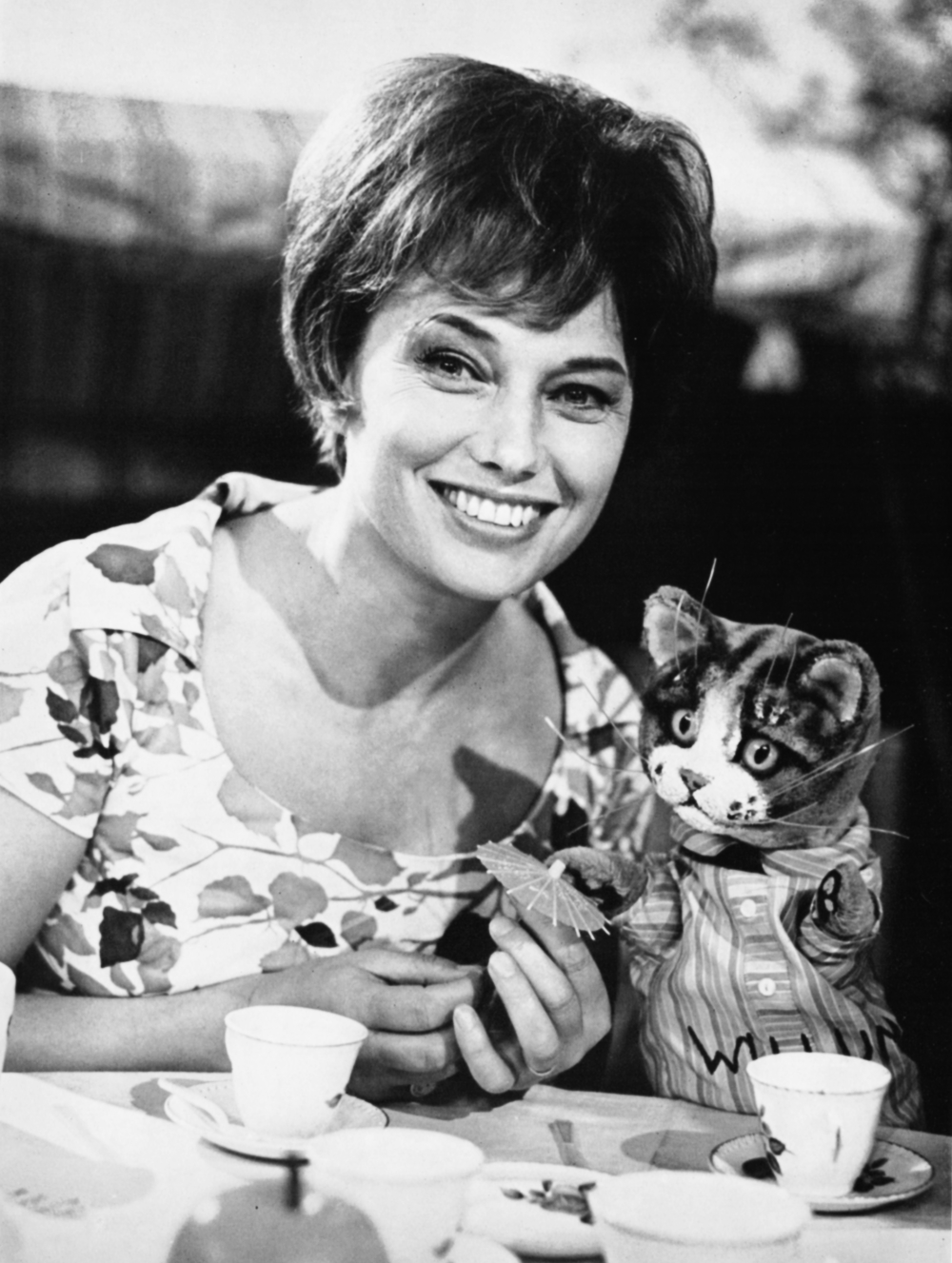
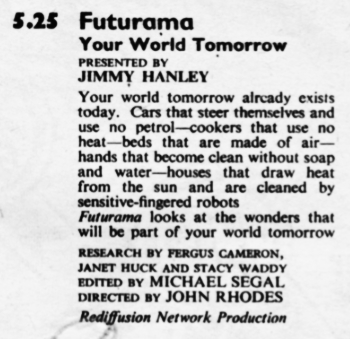
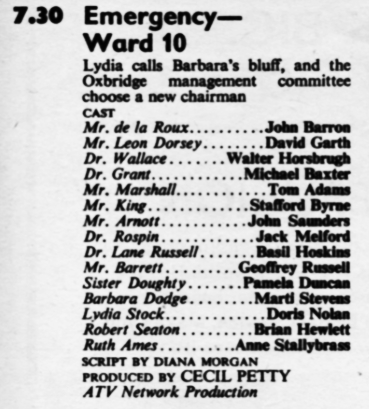
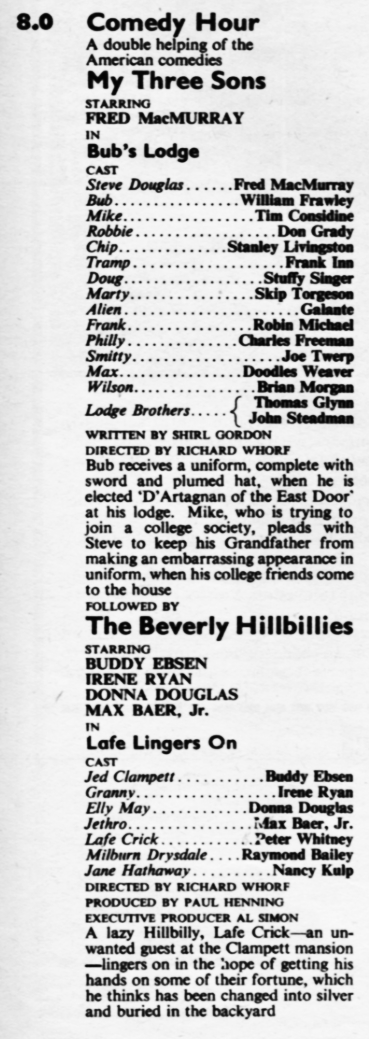
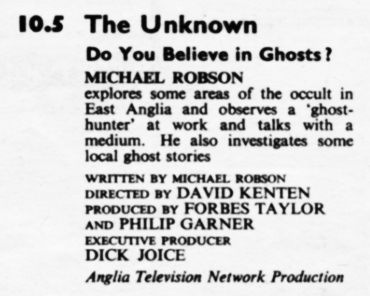
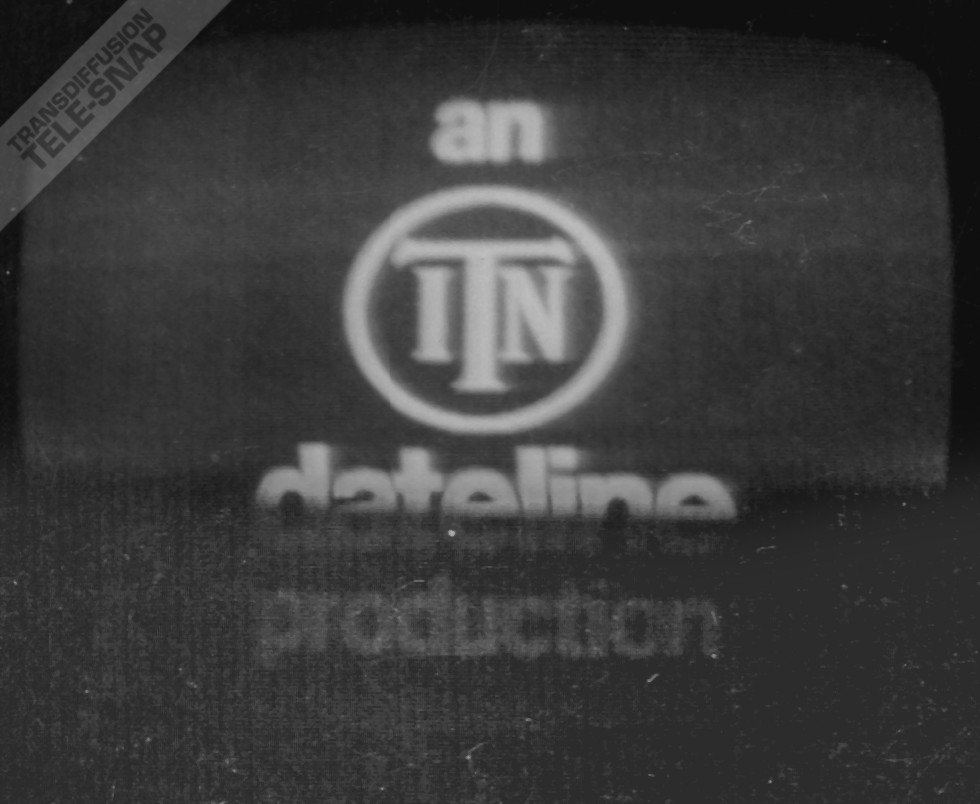
A great piece gentlemen! (But we’d expect nothing else!)
Thank you.
‘The Unknown’ (10.5)… Strangely, I was talking last night to a member of the Norfolk hospital radio station in King’s Lynn that I volunteer at on Friday evenings. She is ‘ex-Anglia’ and is working on a ‘regional faces’ type audio programme for the station and has already contacted her old friend, Helen McDermott (Anglia in vision continuity) for an interview. She remembers Dick Joice, executive producer of ‘The Unknown’ and of course, presenter of ‘Bygones’ that had a 20 year run on Anglia. Dick died in 1999.
It’s a small world.
Amusing that TV Times on “My Three Sons” lists the role of the Douglas family dog Tramp as being played by his trainer, Frank Inn (who includes among the many animals for films and television “Green Acres”‘ Arnold the pig.
The choice of American comedies to show between the regions can be quite singular; Southern for example was the only one to buy a few episodes of ‘Leave it to Beaver’ which it showed in 1962 during children’s television when most of the others were showing Fireball XL5 for the first time.